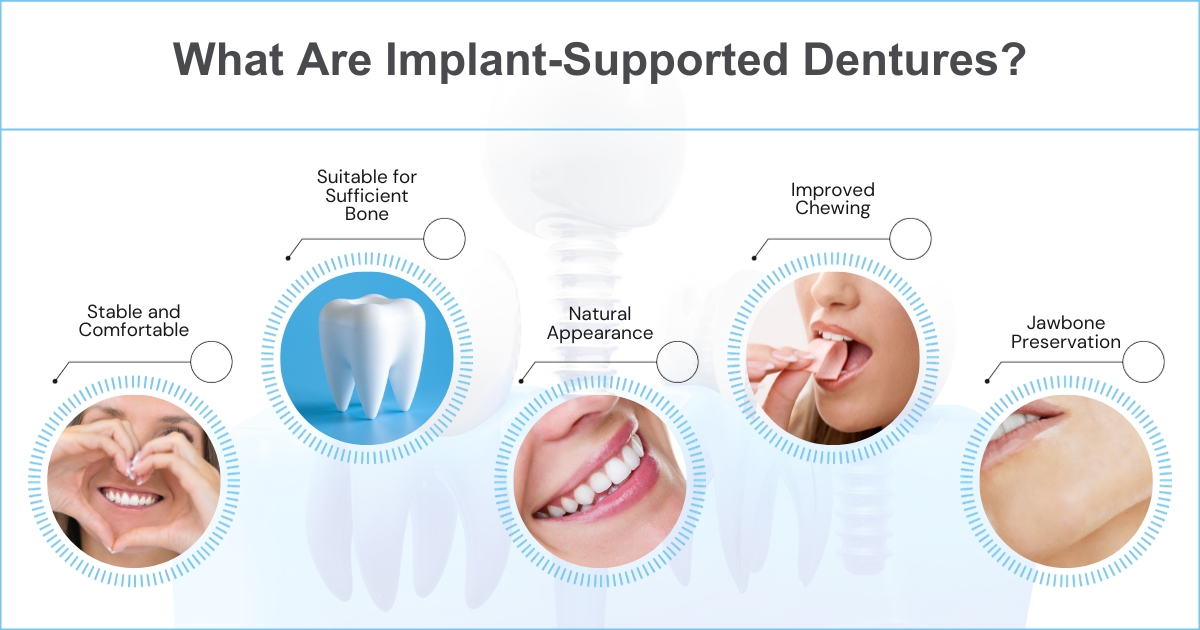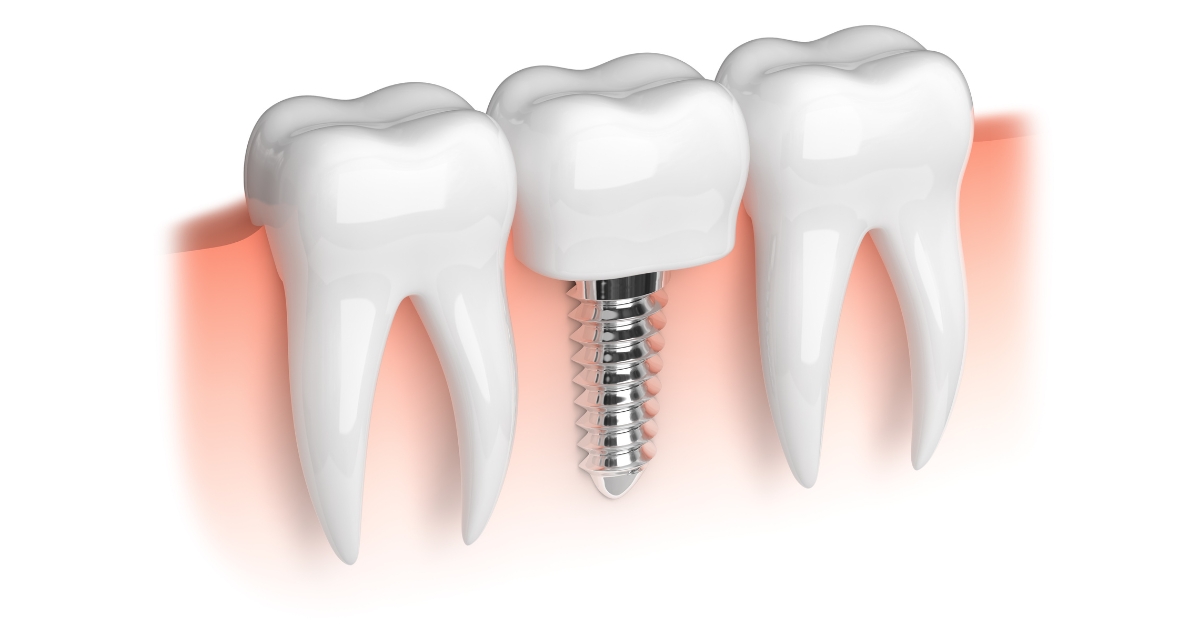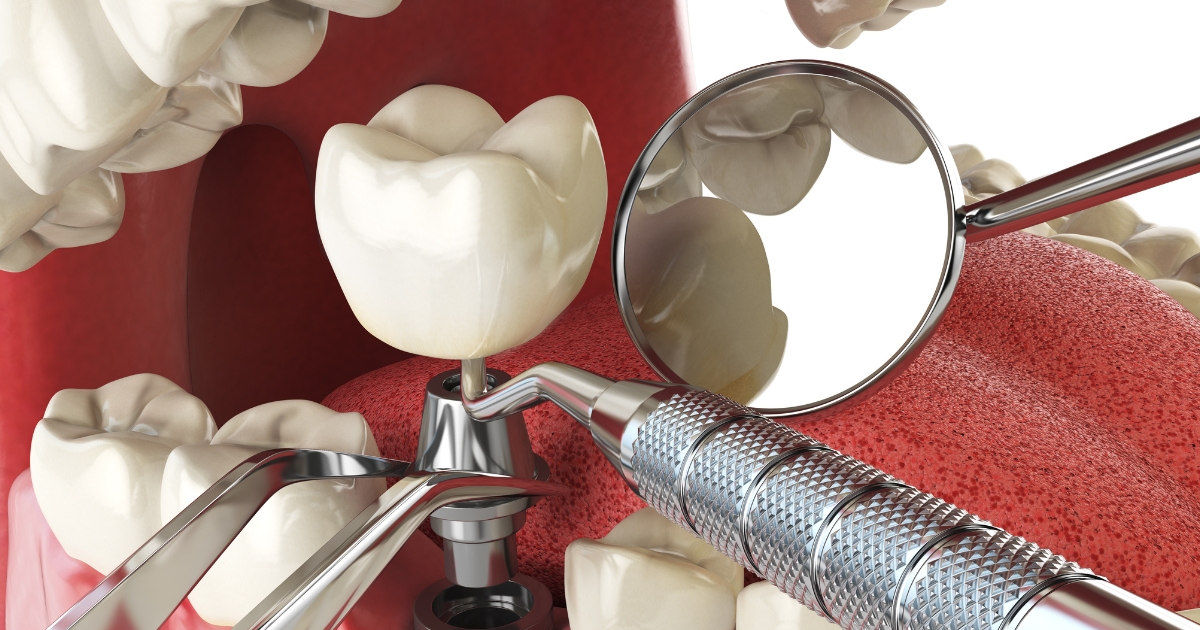Implant-Supported Dentures: The Complete Procedure
An alternative to traditional dentures, implant-supported dentures offer a more comfortable and stable fit. There is information about everything from the initial consultation at the dental clinics in Dubai to the surgical process to post-operative care, costs, and risks in the guide.
During the appointment with your dentist in Dubai, we will also discuss the advantages of choosing implant-supported dentures over traditional dentures and how to maintain your new dentures so that they last for a long time to come.
What Are Implant-Supported Dentures?

Implant-supported dentures are overdentures anchored to implants in the jawbone, ensuring a secure fit and preventing slipping.
- Stable and Comfortable: They provide a comfortable fit, avoiding the sore spots caused by traditional dentures.
- Suitable for Sufficient Bone: Ideal for individuals with enough jawbone structure to support the implants.
- Natural Appearance: Designed to look and feel natural, boosting the wearer’s confidence.
- Improved Chewing: The secure fit allows for improved chewing efficiency.
- Jawbone Preservation: Helps preserve the jawbone and prevent its deterioration.
Step by Step: The Complete Procedure of Getting Implant-Supported Dentures
Getting implant-supported dentures involves multiple dentist visits. A comprehensive dental examination is conducted to assess gum and jawbone health. Then, implants are surgically placed in the jawbone, followed by a healing period to allow bone fusion. Custom-made dentures are then created and attached to the implants, and regular follow-up visits with the best implantologist in Dubai ensure the procedure’s success.
Step | Description |
Comprehensive Dental Exam | The dentist assesses the health of your gums and jawbone to determine suitability for implants. |
Surgical Placement of Implants | Implants are surgically placed into the jawbone. |
Healing Period | A time is allowed for the implants to fuse with the jawbone. |
Creation of Custom Dentures | Dentures are custom-made to fit your mouth and attached to the implants. |
Regular Follow-Up Visits | The dentures must be maintained and checked by the dentist regularly for success. |
Why Choose Implant-Supported Dentures Over Traditional Dentures?
Implant-supported dentures offer several advantages over traditional dentures. They provide a more stable and secure fit, eliminating adhesive need and reducing the risk of slippage. Additionally, because they are anchored to the jawbone, implant-supported dentures help prevent bone loss, a common issue with traditional dentures.
Reason | Explanation |
Stability | Implant-supported dentures are anchored to the jawbone, providing a more stable and secure fit. |
Comfort | Reduces the risk of slippage and irritation compared to traditional dentures. |
Bone Preservation | Anchoring the dentures to the jawbone helps prevent bone loss. |
Natural Appearance | Implant-supported dentures provide a more natural look and feel than traditional dentures. |
Functionality | Easier eating and speaking with implant-supported dentures. |
Durability | Implant-supported dentures are designed to be long-lasting with proper care and maintenance. |
The Benefits of Implant-Supported Dentures: A Comprehensive Guide

Implant-supported dentures provide several benefits over traditional ones, including a secure fit that enhances chewing and oral health, preservation of the jawbone, and a natural appearance that boosts confidence without causing discomfort or sore spots.
Benefit | Description |
Stable and Secure Fit | It prevents slipping or movement, which is common with traditional dentures. |
Improved Chewing and Oral Health | Enhance chewing efficiency, allowing a broader range of food and promoting better oral health. |
Jawbone Preservation | It helps prevent jawbone deterioration, which is common in long-term wearers of traditional dentures. |
Natural Appearance | Designed to look and feel natural, boosting the wearer’s confidence. |
No Discomfort or Sore Spots | Avoid the discomfort and sore spots often associated with traditional dentures. |
Who is the Ideal Candidate for Implant-Supported Dentures?
The ideal candidate for implant-supported dentures has enough jawbone structure to support implants, is in good health without any medical conditions affecting healing, practices good oral hygiene, is preferably a non-smoker as smoking can impede healing, and has realistic expectations about the procedure and its outcomes.
- Sufficient Jawbone: Necessary to support the implants.
- Good Health: Free from medical conditions that could affect healing.
- Good Oral Hygiene: Essential for the success of the procedure.
- Non-smoker: Smoking can negatively impact the healing process.
- Realistic Expectations: Understanding the procedure and its potential outcomes.
The Different Types of Implant-Supported Dentures

Implant-supported dentures come in two main types: bar-retained and ball-retained. Bar-retained dentures have a metal bar attached to implants in the jawbone, with the denture fitting over the bar and clipped into place. Ball-retained dentures have attachments on the denture and implants that fit into each other. Both types offer a secure and comfortable fit.
Type | Description |
Bar-Retained | It involves a metal bar attached to implants in the jawbone; the denture fits and clips over the bar. |
Ball-Retained | It involves attachments on the denture and implants that fit into each other. |
Secure Fit | Both types provide a comfortable and secure fit, preventing slipping or movement. |
The Cost of Implant-Supported Dentures: A Detailed Breakdown
The cost of implant-supported dentures can vary significantly based on several factors, including the number of implants required, the material used for the dentures, and the geographic location of the dental professional.
Additionally, the cost may vary based on the complexity of the procedure and any additional treatments that may be necessary.
Factor | Cost (AED) | Explanation |
Number of Implants | 2,000 – 3,000 per implant | The number of implants required will affect the overall cost. |
Material of Dentures | 1,000 – 5,000 | The type of material used for the dentures will affect the cost. |
Geographic Location | N/A | Costs may vary based on the location of the dental professional. |
Complexity of Procedure | 5,000 – 10,000 | More complex procedures will typically be more costly. |
Additional Treatments | 1,000 – 10,000 | Any additional treatments required, such as bone grafting, will affect the overall cost. |
Dental Insurance | N/A | The amount dental insurance covers will affect the out-of-pocket cost. |
The Risks and Complications of Implant-Supported Dentures
Dentures supported by implants offer many advantages, but there are also risks and complications. These may include infection, nerve damage, and implant failure. Discussing these risks with your dental professional and understanding the potential complications before proceeding is essential.
Risk or Complication | Explanation |
Infection | There is a risk of infection after the surgery to place the implants. |
Nerve Damage | There is a risk of nerve damage during the surgical placement of the implants. |
Implant Failure | There is a risk that the implants may not fuse to the bone properly, resulting in implant failure. |
Poor Fit of Dentures | If the dentures are not properly fitted, they may cause discomfort or irritation. |
Bone Loss | Although implant-supported dentures help prevent bone loss, there is still a risk of bone loss over time. |
Damage to Surrounding Teeth | There is a risk of damage to the surrounding natural teeth during the procedure. |
Finding the Right Dental Professional for Your Implant-Supported Dentures
Choosing the right dental professional is crucial for the success of your implant-supported dentures. Choosing a dental professional with experience and expertise in implant dentistry is essential. Selecting a dentist who pays close attention to your wants and concerns and offers extensive follow-up care is also beneficial.
- Choose a dental professional with experience and expertise in implant dentistry.
- Select a professional who is attentive to your needs and provides comprehensive aftercare.
- Doing thorough research and asking for recommendations can help you find the right dental professional.
In addition to improving comfort, stability, and quality of life, dentures supported by implants have many other advantages. It is essential to understand the entire process, from the consultation through the post-operative care, if this is something you are considering.
Dentures supported by implants can provide long-term and satisfying solutions to tooth loss with proper care and maintenance. Consult a dental professional to determine if implant-supported dentures are the right option.
Ready to transform your smile and improve your quality of life with implant-supported dentures? Schedule a consultation with our Dental Clinics in Dubai! A member of our experienced and attentive team is available to answer every question and provide information about the procedure, prices, and potential risks. Don’t wait any longer to enjoy the benefits of a more stable, comfortable, and natural-looking solution to missing teeth. Contact Noa Dental Clinic JLT Dubai to schedule your consultation now!
FAQs
Implant-supported dentures are a type of overdenture supported by and attached to implants. They are anchored to dental implants surgically placed in the jawbone, providing a more stable and secure fit than traditional dentures.
Traditional dentures rest on the gums and may require adhesives to stay in place, while implant-supported dentures are anchored to dental implants in the jawbone, providing a more stable and secure fit.
Benefits of implant-supported dentures include improved comfort, stability, natural appearance, bone preservation, easier eating and speaking, and no need for adhesives.
Infections, nerve damage, implant failure, poor denture fitting, bone loss, and damage to surrounding teeth may be risks and complications.
Implant placement involves several steps, including a dental examination, consultation, surgery, and a healing period that can vary from patient to patient but usually lasts three to six months.

